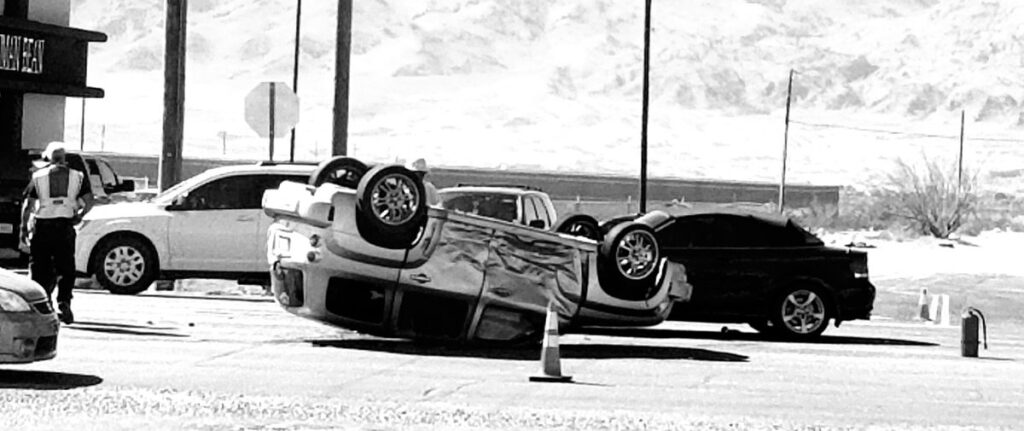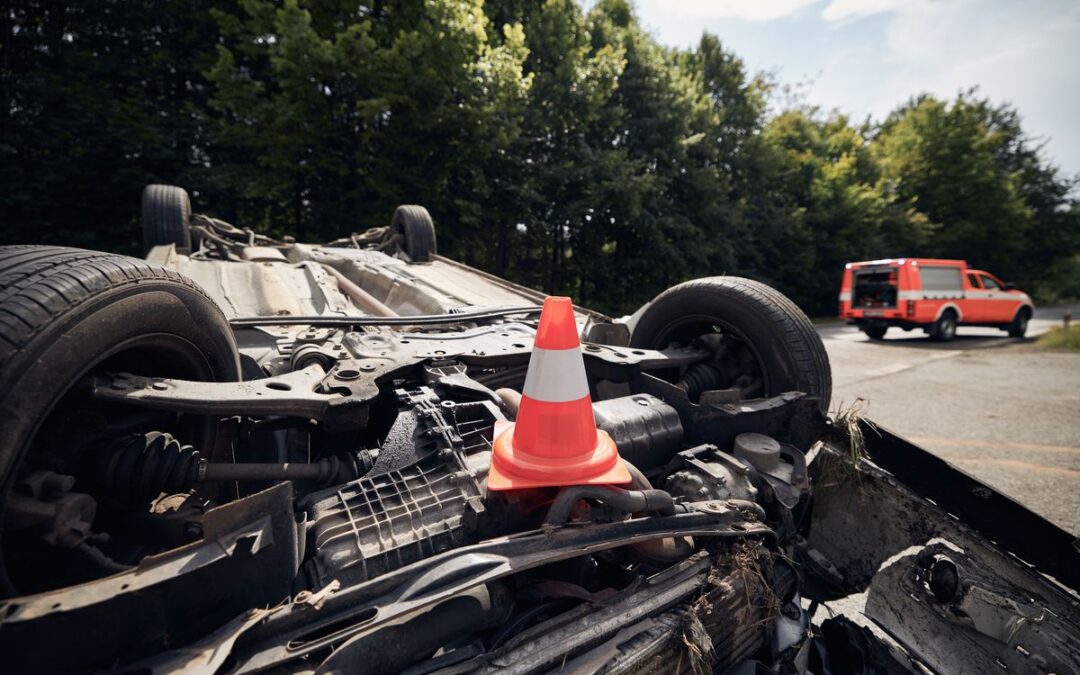Rollovers in Georgia are serious accidents and a growing concern, reflecting a troubling trend on our roads. These accidents are not only dangerous but also complex when it comes to legal implications. Understanding the nuances of these incidents is crucial for anyone affected in Georgia.
The Rising Trend of Rollover Accidents in Georgia
Recent statistics show an alarming increase in rollover accidents across Georgia. Factors contributing to this rise include higher speeds, distracted driving, and an increase in SUVs and trucks, which are more prone to rollovers. This trend calls for heightened awareness and preventive measures.
A Closer Look at the Numbers
The data from the Georgia Department of Transportation indicates a steady increase in rollover accidents over the past few years. For instance, in the last reported year, Georgia experienced a rise of approximately 15% in rollover accidents compared to the previous year. This percentage translates into hundreds of additional accidents, many of which resulted in serious injuries or fatalities.
Geographic Spread of Rollover Accidents
The increase in rollover accidents is not confined to a single area but is spread across the state. Urban areas like Atlanta have seen a significant rise, likely due to increased traffic congestion and higher vehicle speeds on expressways. However, rural areas of Georgia are also experiencing a surge in these accidents, often attributed to less traffic regulation and winding roads that challenge drivers.
Demographic Insights
An analysis of the demographic data of rollover accidents in Georgia reveals that these incidents are particularly prevalent among younger drivers, aged between 18 and 34. This age group is more likely to engage in risky driving behaviors that can lead to rollovers. However, the trend is not exclusive to young drivers; older age groups also contribute to these statistics, albeit at a lower rate.
Seasonal and Time Variations
Interestingly, the trend in rollover accidents in Georgia also shows seasonal and time variations. There is a noticeable increase during summer months and holiday seasons, times when travel is more frequent, and roads are busier. Additionally, nighttime accidents account for a higher proportion of rollovers compared to daytime, likely due to reduced visibility and higher instances of impaired driving.
Severity of Outcomes
The severity of outcomes in these rollover accidents is another critical aspect of the trend. The fatality rate in rollover accidents is higher than in other types of vehicle accidents. The injuries sustained are often severe, leading to long-term disabilities. This severity not only impacts the victims and their families but also places a substantial burden on Georgia’s healthcare and legal systems.
Comparisons with National Trends
When compared with national data, Georgia’s trend in rollover accidents is reflective of a broader national issue, yet it outpaces many other states in the rate of increase. This comparison underscores the need for targeted interventions and policies tailored to Georgia’s specific road use patterns and demographics.
Understanding Rollover Accidents
A rollover accident occurs when a vehicle flips over onto its side or roof. These incidents are particularly dangerous due to the potential for severe injuries or fatalities. Factors like vehicle type, road conditions, and driver behavior play significant roles in these accidents.
Common Causes of Rollovers in Georgia
In Georgia, common causes of rollovers include driver error, such as excessive speed or sharp turns, and external factors like uneven road surfaces or collisions with other vehicles. Identifying the cause is critical in determining liability and pursuing legal action.
Higher Speeds and Their Consequences
One of the primary contributors to this rise is the increasing speeds at which vehicles are traveling. On Georgia’s highways and even rural roads, vehicles moving at higher speeds are more likely to lose control, leading to rollovers. The physics is straightforward – higher speeds mean less time to react to road hazards, and when a vehicle does swerve or collide, the momentum can easily tip it over, especially in the case of high-center-of-gravity vehicles.
The Distracted Driving Epidemic
Distracted driving, a nationwide epidemic, is particularly acute in Georgia. With the proliferation of smartphones, drivers are more tempted than ever to take their eyes off the road. A momentary distraction, such as reading a text message, is enough to cause a driver to lose control, veer off the road, or fail to notice a critical change in traffic patterns, leading to catastrophic rollovers.
SUVs and Trucks: Popular but Prone to Rollovers
Georgia has seen a surge in the popularity of SUVs and trucks. These vehicles, while offering certain advantages, are also more susceptible to rollovers due to their higher center of gravity. When these larger vehicles are involved in collisions or are maneuvered sharply, they are more likely to roll over compared to lower-profile cars.

Legal Implications of Rollover Accidents
Rollovers in Georgia bring complex legal implications. Determining fault is crucial, as Georgia follows a modified comparative negligence rule. Liability can fall on the driver, vehicle manufacturer, or even road maintenance authorities, depending on the case specifics.
Determining Fault in Rollover Accidents
Establishing fault in a rollover accident involves analyzing various factors. These include driver behavior, vehicle condition, and road circumstances. In Georgia, the fault is not always clear-cut, making thorough investigation and legal expertise essential.
Impact of Road Conditions on Rollovers
Georgia’s diverse terrain and road conditions can contribute to rollover accidents. Poorly maintained roads, lack of proper signage, or inadequate road design can lead to accidents, potentially implicating government entities in liability cases.
Legal Rights of Rollover Accident Victims
Victims of rollover accidents in Georgia have specific legal rights. These include seeking compensation for medical expenses, lost wages, pain and suffering, and more. Understanding these rights is crucial for victims to ensure they receive fair compensation.
The Importance of Immediate Legal Consultation
After a rollover accident, consulting with a knowledgeable attorney is vital. An experienced injury lawyer at Rebecca Kay Sapp Law Firm can navigate the complexities of Georgia’s legal system, ensuring that the victim’s rights are protected and that they receive the compensation they deserve.
Navigating Insurance Claims After a Rollover
Dealing with insurance companies post-rollover can be challenging. Insurance providers often aim to minimize payouts. Having legal representation ensures that victims’ interests are adequately represented during these negotiations.
The Role of Expert Witnesses in Rollover Cases
Expert witnesses, such as accident reconstruction specialists, play a crucial role in rollover cases. They provide insights into how and why the accident occurred, which is instrumental in building a strong legal case in Georgia.

Comparative Negligence in Georgia Rollover Accidents
Georgia’s comparative negligence rule means that a victim’s compensation can be reduced by their percentage of fault. Understanding how this rule applies in rollover accidents is essential for anyone seeking legal recourse.
Understanding Comparative Negligence
Comparative negligence is a legal concept used in Georgia to apportion fault in accidents. Under this rule, each party involved in an accident can be held responsible for their contribution to the incident. In the context of rollover accidents, this means that the actions of each driver, and potentially other parties, are scrutinized to determine their share of fault.
Apportioning Fault in Rollover Accidents
In rollover accidents, fault can be a complex issue. For instance, a driver might be partially at fault for driving recklessly, but other factors like a vehicle defect or poor road conditions could also contribute to the accident. Georgia law requires a careful examination of all these factors to determine the degree of fault attributable to each party.
Impact on Compensation
The principle of comparative negligence directly impacts the compensation a victim can receive. In Georgia, if a victim is found to be partially at fault, their compensation is reduced by their percentage of fault. For example, if a victim is deemed 20% at fault in a rollover accident, their compensation will be reduced by 20%.
The 50% Bar Rule
Georgia follows a modified version of comparative negligence known as the “50% Bar Rule.” This rule states that a victim who is 50% or more at fault for an accident is barred from receiving any compensation. This aspect is crucial in rollover cases, where the actions of the victim can significantly influence the outcome of the accident.
Legal Representation and Comparative Negligence
Navigating comparative negligence in rollover accidents can be challenging. It often requires the expertise of legal professionals who can effectively argue the degree of fault and protect the victim’s rights. An experienced attorney at Rebecca Kay Sapp Law Firm can present evidence that minimizes the victim’s liability, thereby maximizing the potential compensation.
Gathering Evidence
In rollover accident cases, gathering comprehensive evidence is key to establishing fault. This evidence can include accident scene photos, witness statements, police reports, and expert testimony. The goal is to build a robust case that accurately represents the circumstances of the accident and the degree of fault.
Seeking Compensation for Rollover Accidents
Victims of accidents that are from rollovers can seek compensation for various damages in Georgia. These include medical expenses, rehabilitation costs, lost income, and non-economic damages like pain and suffering. A skilled personal injury attorney at Rebecca Kay Sapp Law Firm can help maximize the compensation received.
The Statute of Limitations in Georgia
In Georgia, the statute of limitations for filing a personal injury claim is generally two years from the date of the accident. Understanding this timeline is crucial, as failing to act within this period can result in the loss of the right to claim.
Preventive Measures to Avoid Rollovers
Prevention is key to reducing rollovers. This includes adhering to speed limits, avoiding distractions, and proper vehicle maintenance. Awareness campaigns and stricter enforcement of traffic laws can also play a significant role in prevention.
Adherence to Speed Limits
Speeding is a leading cause of rollover accidents. Adhering to posted speed limits is not just a legal requirement but a critical safety practice. Drivers should be particularly cautious on curves, where the risk of rollovers increases with speed. Lowering speed in these areas can dramatically reduce the likelihood of a vehicle losing control and rolling over.
Avoiding Distractions
Distracted driving, particularly due to mobile device use, is a growing concern. Drivers should commit to keeping their full attention on the road. This means avoiding phone calls, texting, or any other activities that could divert attention away from driving. Educating drivers about the dangers of distracted driving, especially in relation to rollovers, is vital.
Regular Vehicle Maintenance
Proper vehicle maintenance, especially for SUVs and trucks, is essential in preventing rollovers. This includes regular checks and maintenance of tires, brakes, and suspension systems. Ensuring that a vehicle is in good working order can help maintain stability and control, particularly in emergency maneuvers that could lead to a rollover.
Awareness Campaigns
Public awareness campaigns play a significant role in educating drivers about the risks of rollovers and the importance of safe driving practices. These campaigns can use various media platforms to reach a wide audience, emphasizing the dangers of speeding, distraction, and other risk factors associated with rollovers.
Conclusion
Rollovers in Georgia can be a serious accident with complex legal implications. Understanding these implications, from determining fault to seeking compensation, is crucial. Victims and their families must seek experienced legal counsel to navigate these challenging situations effectively. With the right approach, we can hope to see a decrease in these tragic incidents and ensure that those affected receive the justice and support they deserve.

